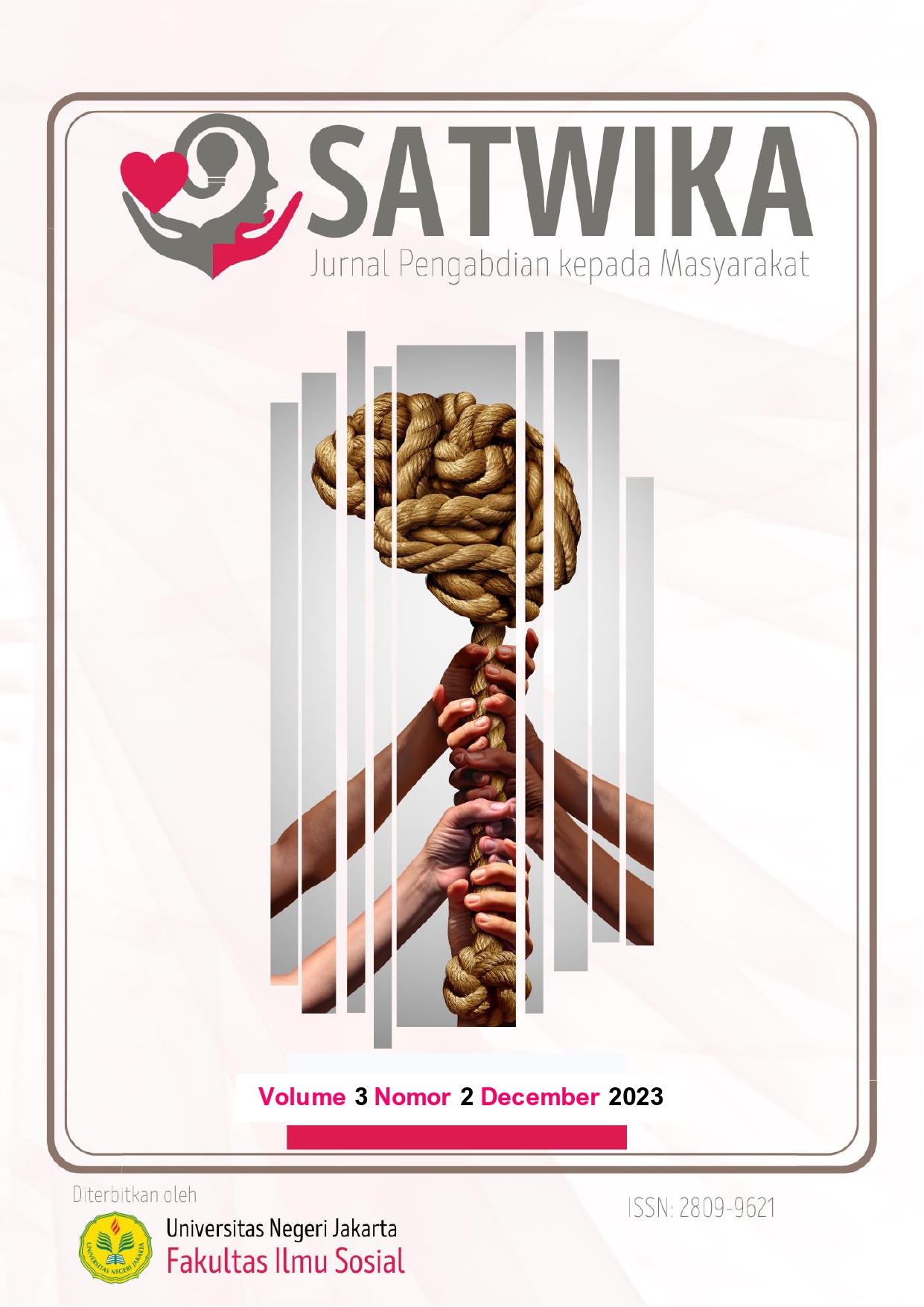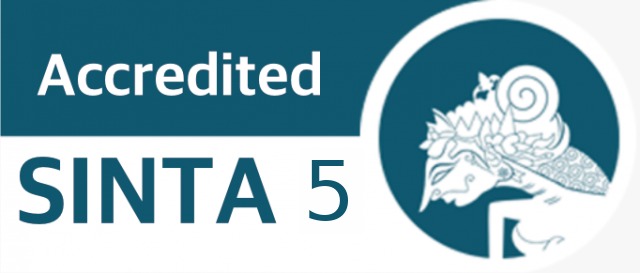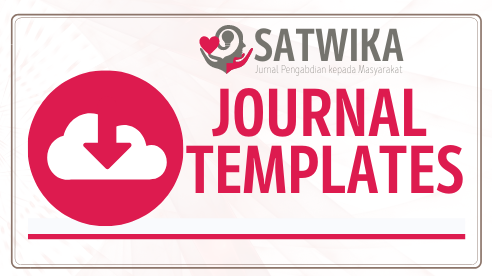Peningkatan Literasi dan Numerasi Siswa SDN Karang Manik Melalui Program Kampus Mengajar
DOI:
https://doi.org/10.21009/satwika.030201Keywords:
Kampus Mengajar Program, MBKM, Literacy, NumeracyAbstract
Indonesia's PISA results, which are always below the average score and are ranked in the bottom 10, are a strong indicator showing the low literacy and numeracy skills of students, which should be very important for students in strengthening their problem solving abilities, especially in accordance with everyday life. . The state, through the Ministry of Education and Culture, is always creative and innovative to overcome this problem, one of which is by launching the Kampus Mengajar Program which is part of the Merdeka Belajar kampus Merdeka (MBKM) policy. Through this program, students with creative ideas and burning enthusiasm are at the forefront of achieving the above goals. This program is implemented through 3 stages consisting of pre-assignment, assignment and post-assignment. This publication is a publication from students and lecturers of the 5th class of the Kampus Mengajar program with SDN Karang Manik as the placement school. Through the programs that we have designed, the literacy and numeracy skills of SDN Karang Manik students have increased, which can be seen from the comparison of the AKM class pretest and posttest scores conducted at the beginning and at the end of the assignment period which has increased. Even though we only carried out this activity for 1 semester, the work programs that we have designed continue to be carried out by the teachers at the school with the same aim as the aim of holding this Kampus Mengajar program. For us, the Kampus Mengajar program can be used to improve teaching abilities and solve problems that exist in target schools.
References
Daroin, A. D., Santoso, O. V. K., Pranidia, D. M. A., & Halimah, L. L. (2022). Peningkatan Kemampuan Literasi Dan Numerasi Siswa Di Sdn 2 Gombang Tulungagung. D’edukasi: Jurnal Pengabdian Masyarakat, 2(1), 38. https://doi.org/10.25273/dedukasi.v2i1.12670
Herlina, H., Bakar, I. P. S., Nurdiansyah, E., Hastati, S., & Marda, A. B. (2023). Implementasi Program Kampus Mengajar dalam Penguatan Pembelajaran di SD Inpres Sugitangnga pada masa Pandemi Covid 19. Lumbung Inovasi: Jurnal Pengabdian Kepada Masyarakat, 8(1), 42–51. https://doi.org/10.36312/linov.v8i1.1001
Inabah, H. (2020). Pengaruh Minat Kunjung Pemustaka di Perpustakaan “Puspa Cendekia” SD Negeri Pakis 1. UNILIB : Jurnal Perpustakaan, 11(1), 9–14. https://doi.org/10.20885/unilib.vol11.iss1.art2
Kemendikbud. (2021). sak. 1–66. https://lldikti13.kemdikbud.go.id/wp-content/uploads/2022/07/Panduan-Implementasi-Kebijakan-Merdeka-Belajar-Kampus-Merdeka-MBKM.pdf
Kemendikbud. (2023a). BUKU PANDUAN KAMPUS MENGAJAR Angkatan 5 Tahun 2023. 1–59.
Kemendikbud. (2023b). Buku Saku Dinas Pendidikan Kabupaten / Kota , dan Sekolah Sasaran Program Kampus Mengajar Angkatan 5 Tahun 2023.
Marbun, J. (2022). Meningkatkan Kemampuan Literasi dan Numerasi Peserta Didik melalui Bimbingan Gratis di SMP Teladan Sumatera Utara. Jurnal Abdidas, 3(2), 299–303. https://doi.org/10.31004/abdidas.v3i2.584
Purnamawati, Y., Ismail, M., Alqadri, B., & Zubair, M. (2023). UPAYA PENINGKATAN KEMAMPUAN LITERASI DAN NUMERASI SISWA MELALUI PROGRAM KAMPUS MENGAJAR ANGKATAN 5 DI SMPN 21 MATARAM Yuli. 08, 1–14. https://www.ncbi.nlm.nih.gov/books/NBK558907/
Rachman, B. A. R., Firyalita Sarah Fidaus, Nurul Lailatul Mufidah, Halimatus Sadiyah, & Ifit Novita Sari. (2021). Peningkatan Kemampuan Literasi dan Numerasi Peserta Didik Melalui Program Kampus Mengajar Angkatan 2. Dinamisia : Jurnal Pengabdian Kepada Masyarakat, 5(6), 1535–1541. https://doi.org/10.31849/dinamisia.v5i6.8589
Rohim, D. C. (2021). Konsep Asesmen Kompetensi Minimum untuk Meningkatkan Kemampuan Literasi Numerasi Siswa Sekolah Dasar. Jurnal VARIDIKA, 33(1), 54–62. https://doi.org/10.23917/varidika.v33i1.14993
Schleicher, & Andreas. (2019). PISA 2018: Insights and Interpretations. Organisation for Economic Cooperation and Development (OECD) (France). https://eric.ed.gov/?id=ED601150
Shofia Hattarina, Nurul Saila, Adenta Faradila, Dita Refani Putri, & RR.Ghina Ayu Putri. (2022). Implementasi Kurikulum Merdeka Belajar Di Lembaga Pendidikan. Seminar Nasional Sosial Sains, Pendidikan, Humaniora (SENASSDRA), 1, 181–192. http://prosiding.unipma.ac.id/index.php/SENASSDRA
Subakti, H. (2021). Literasi Matematika dan Penanaman Nilai Kerja Sama Melalui Permainan Tradisional Asen Naga Kepada Anak Sekolah Dasar. Jurnal Pengabdian Ahmad Yani, 1(2), 57–65. https://doi.org/10.53620/pay.v1i2.37
Widyantoro, M., Zulfadhli, M., Ismaniah, Hamdani, H., & Kurniasari Rahmawati, N. (2022). Upaya Peningkatan Literasi Dan Numerasi Melalui Adaptasi Teknologi Di Sd Negeri Srijaya 04 Bekasi. Jurnal Pengabdian Masyarakat Bumi Raflesia, 5(2), 904–908.
Downloads
Published
How to Cite
Issue
Section
License
Copyright (c) 2023 Camellia Camellia

This work is licensed under a Creative Commons Attribution-ShareAlike 4.0 International License.
In developing strategy and setting priorities, SATWIKA: Jurnal Pengabdian kepada Masyarakat recognize that free access is better than priced access, libre access is better than free access, and libre under CC-BY-SA or the equivalent is better than libre under more restrictive open licenses. We should achieve what we can when we can. We should not delay achieving free in order to achieve libre, and we should not stop with free when we can achieve libre.
SATWIKA: Jurnal Pengabdian kepada Masyarakat is licensed under a Creative Commons Attribution 4.0 International License
You are free to:
- Share — copy and redistribute the material in any medium or format
- Adapt — remix, transform, and build upon the material for any purpose, even commercially.
- The licensor cannot revoke these freedoms as long as you follow the license terms.










